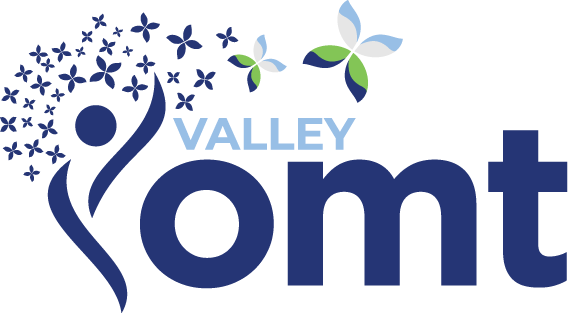As Orofacial Myofunctional Therapists serving Central Pennsylvania, we regularly help families understand the crucial connection between sleep quality and academic success.
Think of your child’s brain as a computer that needs proper shutdown and restart time – quality sleep is essential for processing the day’s information and preparing for new learning.
At Valley OMT in Camp Hill, we work with families from across Central PA school districts to address sleep-related learning challenges.
Understanding Sleep’s Impact on Learning
Research shows that children need different amounts of quality sleep at different ages. Working alongside pediatricians across Central PA, we’ve observed how inadequate sleep affects various aspects of cognitive development. During sleep, the brain processes new information, consolidates memories, and prepares for the next day’s learning challenges.
Sleep Cycles and Learning
Different stages of sleep serve unique purposes in learning and development:
- Deep sleep helps consolidate memories and process new skills
- REM sleep supports emotional regulation and creative thinking
- Light sleep transitions help maintain overall sleep architecture
- Total sleep duration affects attention and focus
Signs of Sleep-Related Learning Issues
Parents throughout the greater Harrisburg area often notice these indicators in their children:
- Difficulty focusing during morning classes
- Increased irritability affecting peer relationships
- Homework taking longer than expected
- Decreased test performance
- Behavioral issues mistaken for ADHD
The Connection to Breathing and OMT
Many sleep issues stem from underlying Orofacial Myofunctional Disorders (OMDs) that affect breathing patterns. At Valley OMT, we specialize in identifying and treating these disorders through targeted therapy, often seeing significant improvements in both sleep quality and academic performance within 16 weeks of treatment.
Age-Specific Sleep Needs
Elementary School Children
Optimal sleep supports reading development, math skills, and social learning. Working with local elementary schools, we’ve found that addressing sleep issues early helps prevent learning gaps.
Middle School Students
During these crucial years, quality sleep becomes even more critical for complex problem-solving and emotional regulation. We coordinate with school counselors to support students during this transitional period.
High School Teens
With demanding academic schedules, proper sleep becomes essential for managing academic pressure and maintaining mental clarity.
Creating an Optimal Sleep Environment
Beyond addressing underlying breathing issues, we guide families in establishing proper sleep hygiene:
- Consistent bedtime routines
- Proper room temperature and lighting
- Limited screen time before bed
- Appropriate mattress and pillow positioning
- Regular sleep and wake times
Treatment Success Stories
Professional Collaboration
Our practice works closely with:
- Local school district health services
- Pediatric sleep specialists
- Educational psychologists
- Behavioral specialists
- Learning support teams
Take Action for Academic Success
Located conveniently off Route 11/15 in Camp Hill, Valley OMT offers comprehensive sleep assessments and treatment plans tailored to your child’s specific needs. We offer flexible scheduling to accommodate school hours.
Contact our office today to schedule a consultation. Let’s work together to help your child achieve better sleep and unlock their full learning potential.
Frequently Asked Questions
Q: How quickly can we expect to see improvements in school performance? A: Many families notice improvements in attention and learning within 4-6 weeks of addressing sleep issues.
Q: How do I know if my child’s learning issues are sleep-related? A: We provide comprehensive assessments to determine the connection between sleep patterns and academic challenges.
Q: Can poor sleep be mistaken for ADHD? A: Yes, sleep-related attention issues often mirror ADHD symptoms. We work with local pediatricians to ensure accurate diagnosis.
